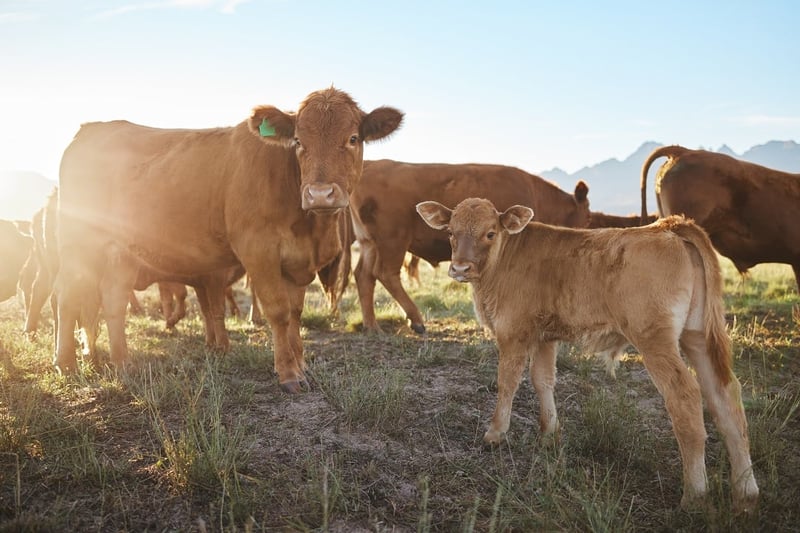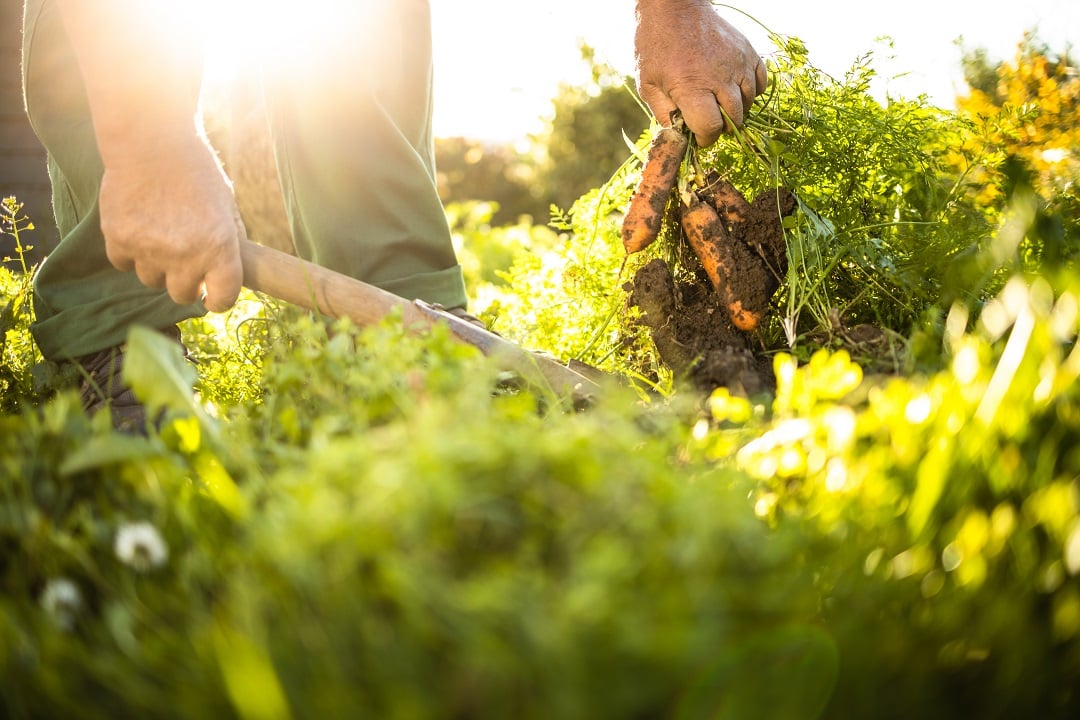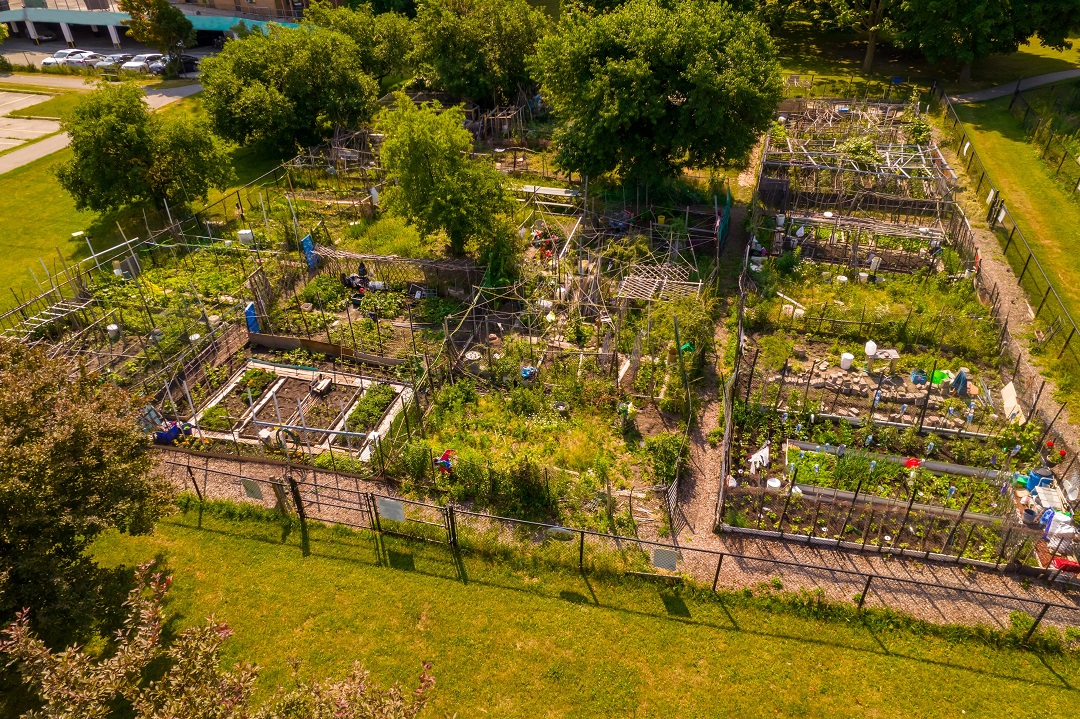
What is agroecology and why is it important?
Blog
Learn how agroecology enhances sustainable farming with rotational grazing, agroforestry and crop-livestock systems to improve biodiversity, soil health and animal welfare.
What is agroecology?
‘Agroecology’ is both the study of how nature can support farming and the practice of farming in harmony with the environment.
Unlike conventional farming methods that can harm the environment, agroecology takes a holistic approach and considers the interconnectedness of plants, animals, people and the environment. At its core, agroecology combines ecological principles with agriculture to create sustainable food systems. It emphasizes working with nature rather than against it by promoting biodiversity, healthy soil, water conservation and minimal reliance on synthetic inputs like chemical fertilizers and pesticides.
 Photo: l i g h t p o e t / Shutterstock
Photo: l i g h t p o e t / Shutterstock
The role of animals in agroecology
Agroecology prioritizes humane practices and integrates animals into farming systems in ways that support nature, such as:
- Rotational grazing: Moving animals between pastures to prevent overgrazing, improve soil health and encourage plant diversity. This also allows the animals to access fresh forage, promotes natural behaviours and reduces stress.
- Crop-livestock integration: Animals can help manage crops by grazing weeds and providing manure for fertilizer, while crops provide food for the animals. This helps reduce animal confinement and creates a more balanced, enriched environment for the animals.
- Agroforestry with livestock: Incorporating trees and shrubs in pastures (agroforestry) not only enhances biodiversity and improves soil and water quality, but the trees also provide shade, shelter and forage for the animals.
- Minimized use of chemicals: Agroecology focuses on natural alternatives like composting, rotational grazing and preventive care to support animal health.
By working with nature, agroecology supports animal welfare while maintaining sustainable food production systems.
Why is sustainable agriculture important to our future?
The world faces significant challenges – from climate change and biodiversity loss to an ever-expanding population putting strains on our food systems. Sustainable agriculture offers solutions to these issues.
Here's why agroecology matters:
1. Protects biodiversity
Agroecological practices like crop rotation (planting different crops in the same area each season), intercropping (growing multiple crops together) and agroforestry boost biodiversity. They help to create varied habitats and food sources for wildlife, while encouraging natural pest control by supporting beneficial organisms.
2. Mitigates climate change
Sustainable farming reduces greenhouse gas emissions by using less fossil fuel and storing carbon in healthy soils. Practices like cover cropping (planting crops that protect and enrich the soil between harvests) and no-till farming (growing crops without disturbing the soil with plows) also prevent soil erosion and keep carbon in the ground.
3. Ensures food security
As the global population grows, sustainable farming helps to ensure long-term food production by keeping soil healthy and reducing our reliance on finite resources like synthetic fertilizers. There is significant evidence that agroecological practices can have positive impacts on food security and nutrition.
4. Supports rural communities
Agroecology often relies on local knowledge and resources, empowering farmers and fostering economic stability. Fair trade and cooperative farming models ensure better livelihoods for small-scale farmers.
5. Promotes resilient food systems
Agroecology reduces the impact of extreme weather events and market fluctuations by diversifying crops and focusing on local food systems.
Agroecology in action
Agroforestry in Africa: Farmers in Kenya are planting trees alongside crops to restore soil fertility, provide shade for livestock and increase crop yields.
Regenerative farming in the United States: Many farms are adopting regenerative practices, such as rotating livestock and crops, to rebuild soil health and cut carbon emissions.
Urban farming in Canada: Communities in cities like Toronto are using agroecological principles to grow food locally, reducing food miles (the distance from where food is produced to where food is consumed) and increasing urban sustainability.
 An urban community garden growing food in Toronto. (Photo: Golden Shrimp / Shutterstock).
An urban community garden growing food in Toronto. (Photo: Golden Shrimp / Shutterstock).
How you can support sustainable farming practices
- Eat locally and seasonally: Support local farmers practicing sustainable agriculture by shopping at farmers' markets.
- Reduce food waste: Prevent food from ending up in landfills to lower greenhouse gas emissions.
- Eat less meat: Reducing your meat consumption can help decrease the demand for factory farming, which is harmful to animals and the environment. Instead, add more plants to your diet to lower your carbon footprint and promote more sustainable food systems!
- Advocate for change: Sign petitions and contact policymakers to support agroecological initiatives. Join us in our fight to put an end to harmful farming practices like factory farming.
Agroecology is more than a farming method – it's a pathway to a sustainable, equitable and resilient future.
Banner photo: PeopleImages.com - Yuri A / Shutterstock